Strictly Personal
The culture of election debate in Nigeria by Jide Ojo
Published
1 year agoon
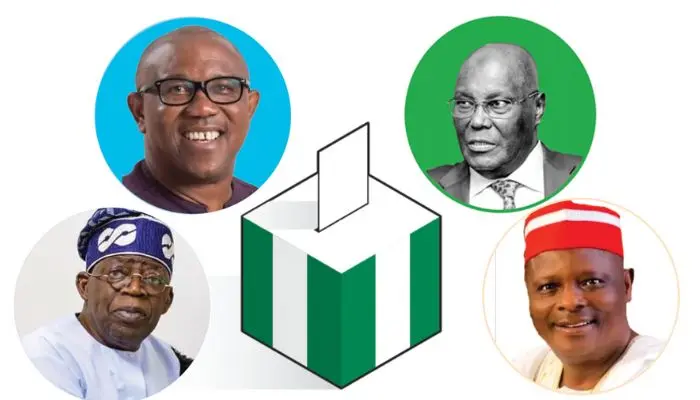
According to the International Growth Centre, a global research Centre, “Well-functioning democratic structures and strong political governance are central to economic development. However, a lack of information about elections in younger democracies can weaken the accountability of elected politicians and, consequently, decision-making.” Political information can be difficult to access in developing countries because of fledgling democratic structures and poor media penetration. Citizens may vote for candidates with little knowledge of their policy stances, qualifications, previous performance, or potential remit. The IGC research in Ghana and Sierra Leone revealed that “voters showed improved awareness of specific candidates, their policies, and general political knowledge for several weeks after viewing a debate.” Furthermore, “participants reported that debates helped inform their choices at the ballot box. They were more likely to vote for candidates who shared their policy priorities and for higher quality candidates.” Election debates are therefore very important for political accountability.
In Nigeria, the culture of election debate has been cultivated since 1999 and is being nurtured by the media and civil society organisations. The Nigeria Elections Debate Group is a coalition of broadcast organisations, civil society organisations, and professional groups who are committed to the deepening of democracy in the country and the entrenching of an enduring democratic culture through organised television debates since the return to democratic rule in 1999. Since then, the group has put together debates to enable the Nigerian electorate to have the opportunity to hear firsthand from aspiring presidential candidates, their intentions and aspirations through an equal opportunity platform. The NEDG has since transformed into a broad based non-partisan, non-profit making organisation with the primary mandate of organising and hosting live televised debates for all presidential, vice presidential, and governorship candidates in Nigeria.
Ahead of the 2023 general elections and even before the official flag-off of campaign period on September 28, 2022, many associations such as the Nigerian Bar Association and Institute of Chartered Accountants of Nigeria have used the opportunity of their annual conventions to invite presidential candidates to the forthcoming general elections to come and talk to their members and by extension, the Nigerian public.
Recall that at the NBA Annual General Meeting, which was held in Lagos in August 2022, the presidential candidates of the Peoples Democratic Party and the Labour Party, Atiku Abubakar and Peter Obi respectively, were present at the event. The vice-presidential candidate of the All Progressives Congress, Kashim Shettima, was also present to represent the presidential candidate of the party, Asiwaju Bola Tinubu.
While many of the participants hailed the Labour Party candidates during their appearance on August 22, the dressing of Shettima became a needless distraction and an issue, especially on social media with many knocking him for wearing ill-fitted suits and canvas shoes. Of course, this was robustly defended by the APC loyalists.
On October 12, 2022, the presidential candidate of the African Action Congress, Omoyele Sowore, and Obi attended the Institute of Chartered Accountants of Nigeria’s conference in Abuja. Other presidential candidates present were Prof Christopher Imulomen of the Accord Party and Prof Peter Umeadi of the All Progressives Grand Alliance. Tinubu and Atiku were absent. Although the running mate of the PDP and New Nigeria Peoples Party candidates represented their principals at the event.
The first in the series of political debates ahead of the 2023 general elections took place last Sunday, November 6, 2022. It was tagged, “Presidential Town Hall Meeting on Security and Economy.” It was organised by Arise News Channel, in collaboration with Centre for Development and Democracy and other partners, such as the Vanguard, Premium Times, Leadership, Daily Trust, and Nigeria Union of Journalists. At the meeting were Obi; NNPP presidential candidate, Rabiu Kwankwaso; PDP vice-presidential candidate, Ifeanyi Okowa, who stood in for Atiku; and the presidential candidate of the Peoples Redemption Party, Kola Abiola.
I have been interviewed on the outcome of the town hall meeting by no fewer than three media stations, both print and electronic. In fact, I was on Daily Politics with Idayat Hassan, the CDD Executive Director on Monday night on Trust TV to review the debate. Earlier, I had been interviewed by a THISDAY newspaper correspondent and was also on Citizen 93.7 FM Abuja to discuss the inaugural presidential debate. I’m amused by the intrigues and drama that played out during and after the programme. The unruly behaviour of a section of the participants who disrupted the take-off of the programme by over an hour by their shout of “no representation by proxy” is reprehensible. The altercation between Obi and Senator Dino Melaye was also uncalled for. However, it is totally not unexpected that such a high-profile event would take place without some issues.
Most unfortunate is the accusation levelled against the organisers for the replacement of the APC candidate with that of the PRP when the former could not attend or send a representative. The explanation that it was based on the availability of Kola Abiola, and the fact that many other candidates that were approached to take over Tinubu’s slot turned down the offer based on the shortness of time for preparations fell on deaf ears. Some of those who took to social media to call out the organisers wished they were the ones appointed to take Tinubu’s slot and not Abiola. What these critics failed to know is that the organisers reserve the right to invite people based on their discretion. Many have also queried why LP, NNPP, PDP and APC candidates were shortlisted to be the first batch of the candidates to be grilled and drilled at the town hall meeting. They chose to ignore the organiser’s claim that it was based on their online and offline survey conducted ahead of the town hall. Not even the assurances that all the 18 candidates would have equal opportunity to feature at the town hall meetings, albeit in batches, was able to placate the aggrieved.
Truth be told, those who pick holes in the organiser’s methodology and decisions should note that town hall meetings and debates are just a few of the opportunities available to them to sell their candidacy. They can organise rallies, get canvassers to work the phone for them, use billboards, organise road shows, and use political advertisements on radio, television, and social media to market themselves. It is not an aberration or anomaly to have dominant political parties in every democracy. The truth is Nigeria is a de jure multiparty state but de facto a two-party country i.e. APC and PDP. How many Nigerians know that though the Democratic and Republican parties are dominant in the United States, there are indeed 209 state-level ballot-qualified political party affiliates in the US as at December 2021? Likewise, despite the domination of the Conservative and Labour parties in the United Kingdom, how many people are aware that as at August 2, 2019, the Electoral Commission of the UK showed the number of registered political parties in Great Britain and Northern Ireland as 408?
I can safely predict that the next President of Nigeria shall come from any of these three presidential candidates: LP, APC, and PDP. The NNPP candidate will be a beautiful bride to be courted in the event that none of the earlier mentioned three wins on the first ballot. The possibility of a run-off in the 2023 presidential election is very high. This is why I have enjoined the Independent National Electoral Commission to embark on political education on how a winner emerges in an election, especially the presidential election as contained in section 134 of the 1999 Constitution. As for the APC presidential candidate who wished not to participate in any election debate, the electorate will have the final say. By the way, all organisers of election debates should engage sign language interpreters in order to ensure that the deaf is able to follow through with the proceedings.
– Twitter: @jideojong
You may like
-


Zambia asks EU to help strengthen its democratic initiatives ahead of 2026 elections
-


Air Peace, capitalism and national interest, By Dakuku Peterside
-


This is chaos, not governance, and we must stop it, By Tee Ngugi
-
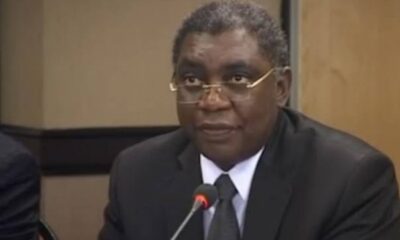

Zambian coalition challenges President Hichilema to test popularity with early election
-


Off we go again with public shows, humbug and clowning, By Jenerali Uliwengu
-


How patriarchy underpins gender violence today, By Tee Ngugi
Strictly Personal
Air Peace, capitalism and national interest, By Dakuku Peterside
Published
1 week agoon
April 16, 2024
Nigerian corporate influence and that of the West continue to collide. The rationale is straightforward: whereas corporate activity in Europe and America is part of their larger local and foreign policy engagement, privately owned enterprises in Nigeria or commercial interests are not part of Nigeria’s foreign policy ecosystem, neither is there a strong culture of government support for privately owned enterprises’ expansion locally and internationally.
The relationship between Nigerian businesses and foreign policy is important to the national interest. When backing domestic Nigerian companies to compete on a worldwide scale, the government should see it as a lever to drive foreign policy, and national strategic interest, promote trade, enhance national security considerations, and minimize distortion in the domestic market as the foreign airlines were doing, boost GDP, create employment opportunities, and optimize corporate returns for the firms.
Admitted nations do not always interfere directly in their companies’ business and commercial dealings, and there are always exceptions. I can cite two areas of exception: military sales by companies because of their strategic implications and are, therefore, part of foreign and diplomatic policy and processes. The second is where the products or routes of a company have implications for foreign policy. Air Peace falls into the second category in the Lagos – London route.
Two events demonstrate an emerging trend that, if not checked, will disincentivize Nigerian firms from competing in the global marketplace. There are other notable examples, but I am using these two examples because they are very recent and ongoing, and they are typological representations of the need for Nigerian government backing and support for local companies that are playing in a very competitive international market dominated by big foreign companies whose governments are using all forms of foreign policies and diplomacy to support and sustain.
The first is Air Peace. It is the only Nigerian-owned aviation company playing globally and checkmating the dominance of foreign airlines. The most recent advance is the commencement of flights on the Lagos – London route. In Nigeria, foreign airlines are well-established and accustomed to a lack of rivalry, yet a free-market economy depends on the existence of competition. Nigeria has significantly larger airline profits per passenger than other comparable African nations. Insufficient competition has resulted in high ticket costs and poor service quality. It is precisely this jinx that Air Peace is attempting to break.
On March 30, 2024, Air Peace reciprocated the lopsided Bilateral Air Service Agreement, BASA, between Nigeria and the United Kingdom when the local airline began direct flight operations from Lagos to Gatwick Airport in London. This elicited several reactions from foreign airlines backed by their various sovereigns because of their strategic interest. A critical response is the commencement of a price war. Before the Air Peace entry, the price of international flight tickets on the Lagos-London route had soared to as much as N3.5 million for the economy ticket. However, after Air Peace introduced a return economy class ticket priced at N1.2 million, foreign carriers like British Airways, Virgin Atlantic, and Qatar Airways reduced their fares significantly to remain competitive.
In a price war, there is little the government can do. In an open-market competitive situation such as this, our government must not act in a manner that suggests it is antagonistic to foreign players and competitors. There must be an appearance of a level playing field. However, government owes Air Peace protection against foreign competitors backed by their home governments. This is in the overall interest of the Nigerian consumer of goods and services. Competition history in the airspace works where the Consumer Protection Authority in the host country is active. This is almost absent in Nigeria and it is a reason why foreign airlines have been arbitrary in pricing their tickets. Nigerian consumers are often at the mercy of these foreign firms who lack any vista of patriotism and are more inclined to protect the national interest of their governments and countries.
It would not be too much to expect Nigerian companies playing globally to benefit from the protection of the Nigerian government to limit influence peddling by foreign-owned companies. The success of Air Peace should enable a more competitive and sustainable market, allowing domestic players to grow their network and propel Nigeria to the forefront of international aviation.
The second is Proforce, a Nigerian-owned military hardware manufacturing firm active in Rwanda, Chad, Mali, Ghana, Niger, Burkina Faso, and South Sudan. Despite the growing capacity of Proforce in military hardware manufacturing, Nigeria entered two lopsided arrangements with two UAE firms to supply military equipment worth billions of dollars , respectively. Both deals are backed by the UAE government but executed by UAE firms.
These deals on a more extensive web are not unconnected with UAE’s national strategic interest. In pursuit of its strategic national interest, India is pushing Indian firms to supply military equipment to Nigeria. The Nigerian defence equipment market has seen weaker indigenous competitors driven out due to the combination of local manufacturers’ lack of competitive capacity and government patronage of Asian, European, and US firms in the defence equipment manufacturing sector. This is a misnomer and needs to be corrected.
Not only should our government be the primary customer of this firm if its products meet international standards, but it should also support and protect it from the harsh competitive realities of a challenging but strategic market directly linked to our national military procurement ecosystem. The ability to produce military hardware locally is significant to our defence strategy.
This firm and similar companies playing in this strategic defence area must be considered strategic and have a considerable place in Nigeria’s foreign policy calculations. Protecting Nigeria’s interests is the primary reason for our engagement in global diplomacy. The government must deliberately balance national interest with capacity and competence in military hardware purchases. It will not be too much to ask these foreign firms to partner with local companies so we can embed the technology transfer advantages.
Our government must create an environment that enables our local companies to compete globally and ply their trades in various countries. It should be part of the government’s overall economic, strategic growth agenda to identify areas or sectors in which Nigerian companies have a competitive advantage, especially in the sub-region and across Africa and support the companies in these sectors to advance and grow to dominate in the African region with a view to competing globally. Government support in the form of incentives such as competitive grants ,tax credit for consumers ,low-interest capital, patronage, G2G business, operational support, and diplomatic lobbying, amongst others, will alter the competitive landscape. Governments and key government agencies in the west retain the services of lobbying firms in pursuit of its strategic interest.
Nigerian firms’ competitiveness on a global scale can only be enhanced by the support of the Nigerian government. Foreign policy interests should be a key driver of Nigerian trade agreements. How does the Nigerian government support private companies to grow and compete globally? Is it intentionally mapping out growth areas and creating opportunities for Nigerian firms to maximize their potential? Is the government at the domestic level removing bottlenecks and impediments to private company growth, allowing a level playing field for these companies to compete with international companies?
Why is the government patronising foreign firms against local firms if their products are of similar value? Why are Nigerian consumers left to the hands of international companies in some sectors without the government actively supporting the growth of local firms to compete in those sectors? These questions merit honest answers. Nigerian national interest must be the driving factor for our foreign policies, which must cover the private sector, just as is the case with most developed countries. The new global capitalism is not a product of accident or chance; the government has choreographed and shaped it by using foreign policies to support and protect local firms competing globally. Nigeria must learn to do the same to build a strong economy with more jobs.
Strictly Personal
This is chaos, not governance, and we must stop it, By Tee Ngugi
Published
2 weeks agoon
April 10, 2024
The following are stories that have dominated mainstream media in recent times. Fake fertiliser and attempts by powerful politicians to kill the story. A nation of bribes, government ministries and corporations where the vice is so routine that it has the semblance of policy. Irregular spending of billions in Nairobi County.
Billions are spent in all countries on domestic and foreign travel. Grabbing of land belonging to state corporations, was a scam reminiscent of the Kanu era when even public toilets would be grabbed. Crisis in the health and education sectors.
Tribalism in hiring for state jobs. Return of construction in riparian lands and natural waterways. Relocation of major businesses because of high cost of power and heavy taxation. A tax regime that is so punitive, it squeezes life out of small businesses. Etc, ad nauseam.
To be fair, these stories of thievery, mismanagement, negligence, incompetence and greed have been present in all administrations since independence.
However, instead of the cynically-named “mama mboga” government reversing this gradual slide towards state failure, it is fuelling it.
Alternately, it’s campaigning for 2027 or gallivanting all over the world, evoking the legend of Emperor Nero playing the violin as Rome burned.
A government is run based on strict adherence to policies and laws. It appoints the most competent personnel, irrespective of tribe, to run efficient departments which have clear-cut goals.
It aligns education to its national vision. Its strategies to achieve food security should be driven by the best brains and guided by innovative policies. It enacts policies that attract investment and incentivize building of businesses. It treats any kind of thievery or negligence as sabotage.
Government is not a political party. Government officials should have nothing to do with political party matters. They should be so engaged in their government duties that they literally would not have time for party issues. Government jobs should not be used to reward girlfriends and cronies.
Government is exhausting work undertaken because of a passion to transform lives, not for the trappings of power. Government is not endless campaigning to win the next election. To his credit, Mwai Kibaki left party matters alone until he had to run for re-election.
We have corrupted the meaning of government. We have parliamentarians beholden to their tribes, not to ideas.
We have incompetent and corrupt judges. We have a civil service where you bribe to be served. Police take bribes to allow death traps on our roads. We have urban planners who plan nothing except how to line their pockets. We have regulatory agencies that regulate nothing, including the intake of their fat stomachs.
We have advisers who advise on which tenders should go to whom. There is no central organising ethos at the heart of government. There is no sense of national purpose. We have flurries of national activities, policies, legislation, appointments which don’t lead to meaningful growth. We just run on the same spot.
Tee Ngugi is a Nairobi-based political commentator
EDITOR’S PICK


Tanzania’s auto-tech startup Spana is simplifying car maintenance— CEO
Tanzania’s auto-tech startup, Spana, has developed a mobile application for a bouquet of automobile services, enabling individual car owners and...


Nollywood thrown into mourning as another veteran actor Zulu Adigwe passes on
The Nigerian movie industry, popularly known as Nollywood, has once again been thrown into mourning with the death of veteran...


Zambian FA boss, Gen.Sec arrested over alleged laundering of K341,902
President of the Football Association of Zambia (FAZ), Andrew Kamanga, has been arrested along with the Secretary-General and two other...
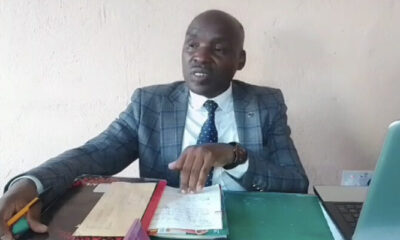

Luapula businessman, Munsanje, reflects on media freedoms and freedom of expression
As stakeholder engagement intensifies regarding the ongoing project to amplify voices on media freedom, freedom of expression, and digital rights,...
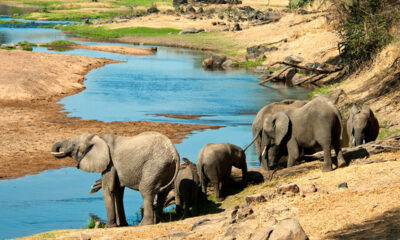

World Bank stops tourism fund to Tanzania’s Ruaha park. Here’s why
A spokesperson for the World Bank said on Wednesday that the lender had stopped all new payments from a $150...


‘It would be risky to release Binance executive from custody risky’, Nigerian govt says
Nigeria’s anti-corruption agency, the Economic and Financial Crimes Commission (EFCC), believes admitting the detained executive of cryptocurrency firm, Binance Holdings...
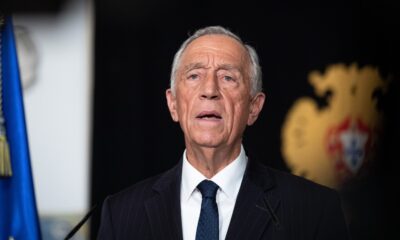

President de Sousa insists Portugal must ‘pay costs’ of slavery, colonial crimes
Following recent conversations around reparations to countries with colonial heritage, Portuguese President, Marcelo Rebelo de Sousa, has added his voice...


Nigeria’s antigraft agency EFCC may try 300 forex racketeers
The Economic and Financial Crimes Commission (EFCC), Nigeria’s anti-corruption body, could go after 300 forex criminals who trade on a...
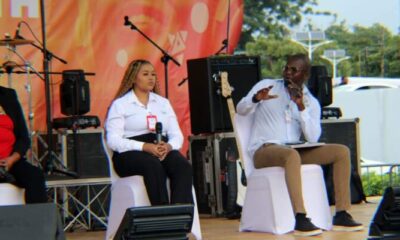

Institute calls for responsible social media usage among youths
Smart Zambia Institute has reiterated the importance of youths to use social media responsibly. Senior Business Applications Officer at the...
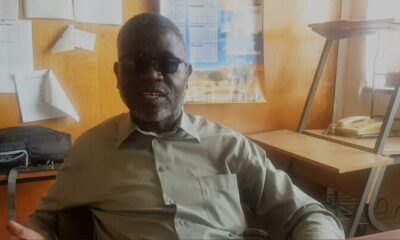

Digital Rights: Policy enthusiast, Jere, advocates self-regulation as alternative to govt regulations
Copperbelt businessman and mining policy advocate, George Jere, has highlighted the importance of self-regulation in the expanding digital media landscape,...
Trending
-

 Musings From Abroad23 hours ago
Musings From Abroad23 hours agoPresident de Sousa insists Portugal must ‘pay costs’ of slavery, colonial crimes
-

 Metro2 days ago
Metro2 days agoNigerian govt shuts Chinese supermarket over ‘no-Nigerian shopper’ allegation
-

 Culture2 days ago
Culture2 days agoEgypt reclaims 3,400-year-old stolen statue of King Ramses II
-
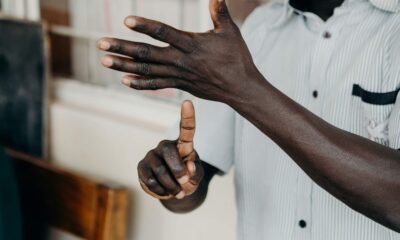
 Metro2 days ago
Metro2 days agoSign language interpreter, Kunda, seeks inclusivity in media rights agenda (video)


